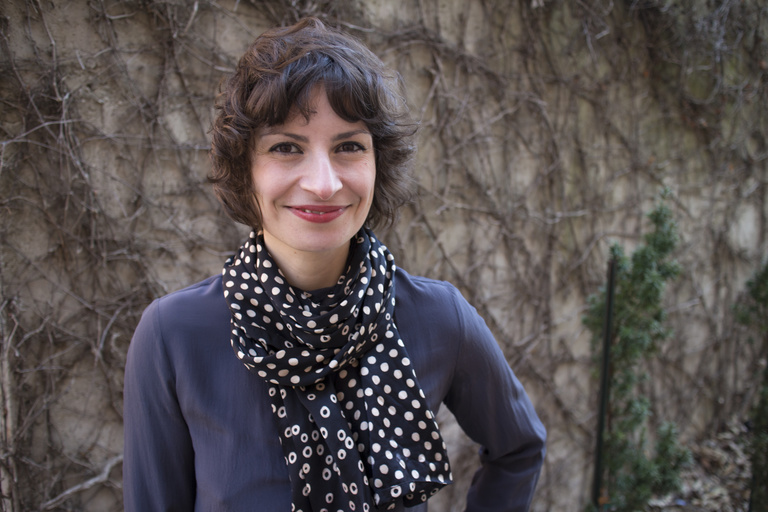
Name: Hodna Bentali Gharsallah Nuernberg
Hometown: Iowa City, Iowa
Type of Fulbright Award: Fulbright English Teaching Assistant Award
Degree and Field of Study: M.A. French, M.F.A. Literary Translation, 2016, B.A. French & Arabic, 2011
Research/Teaching: I will be teaching English at a public university in Morocco. I am looking forward to introducing my students to the writing of contemporary American authors (like Junot Diaz) who are from immigrant backgrounds and whose explorations of complex linguistic identities will resonate with my multilingual Maghrebian students.
What drew you to this field of study? I grew up the bookish child of an immigrant father and an American mother, but it wasn’t until I turned eighteen that I traveled to Algeria to meet my extended family for the first time. After spending the summer with them, I became a truly feverish reader of North African literature: writers like Abdellatif Laabi and Assia Djebar introduced me to my father’s history, and Marjolijn de Jager’s magnificent translation of Tahar Djaout’s The Last Summer of Reason led me to my vocation as a literary translator and advocate of international literature.
How do you envision this will change your life? International experience is always life-changing! I am really looking forward to improving my Arabic and Darija skills and to learning more about the sociocultural context of the Maghreb from my students and colleagues. Ultimately, doing a Fulbright in Morocco will allow me to become a more sensitive and effective translator and advocate of the Maghrebian literature that has meant so much to me.
What advice do you have for future students interested in pursuing a Fulbright award? I have a lot of advice, but here is the concise version of my answer: First of all, don't be discouraged! It's easy to look at a few examples of successful Fulbright essays and feel like you don't measure up— but keep in mind that those essays were the result of nearly a year of writing and revising. I started out feeling intimidated and ended up seriously impressed by my own essays. Secondly, apply by the priority deadline (for the 2017-2018 cycle, the deadline was July 1st)— it is so helpful to have a deadline that allows you to produce a complete application you feel pretty good about, then to set said application aside for a month or two and return to your revisions renewed after the summer vacation. And third, realize that the Fulbright committee will be reading hundreds (thousands?) of applications, so they may not have the time to parse extremely long, complex sentences or to make sense of technical terms or jargon. Try to write in a very direct and clear way so that it doesn't take a second reading to fully grasp what you're getting at.
What campus resources were most helpful to you when you applied for a Fulbright? Karen Wachsmuth! (I know she's a person and not a resource, but I couldn't have done it without her.)